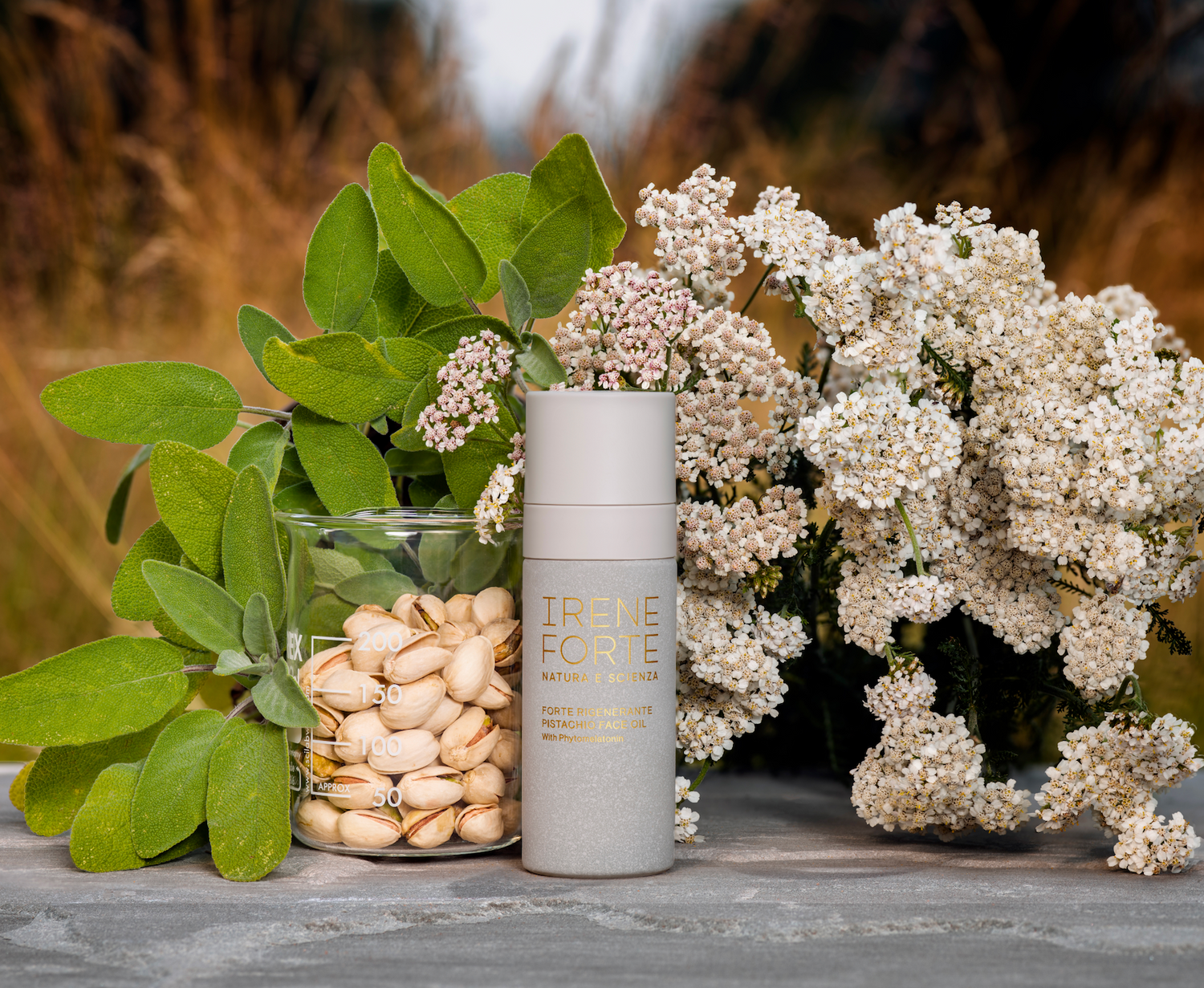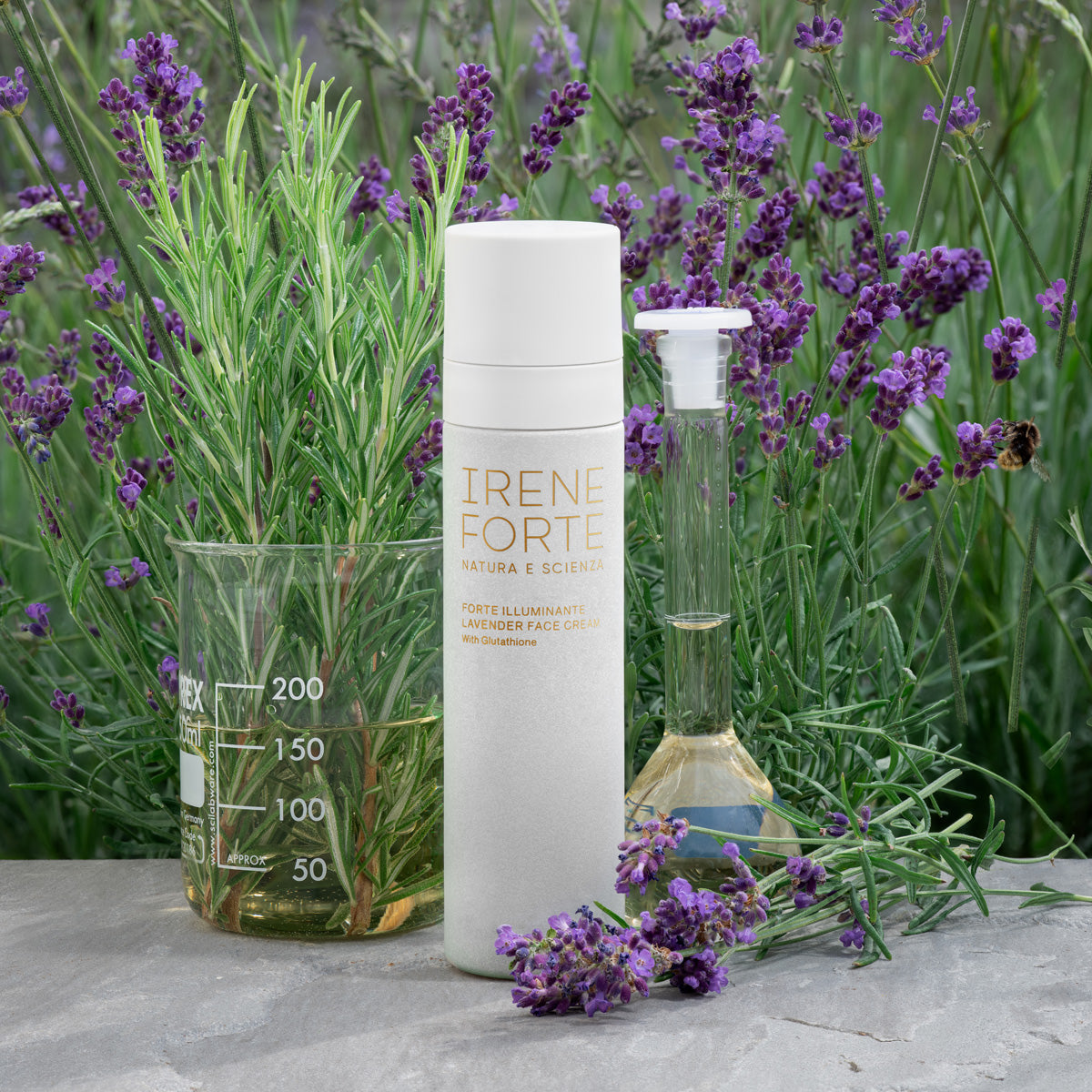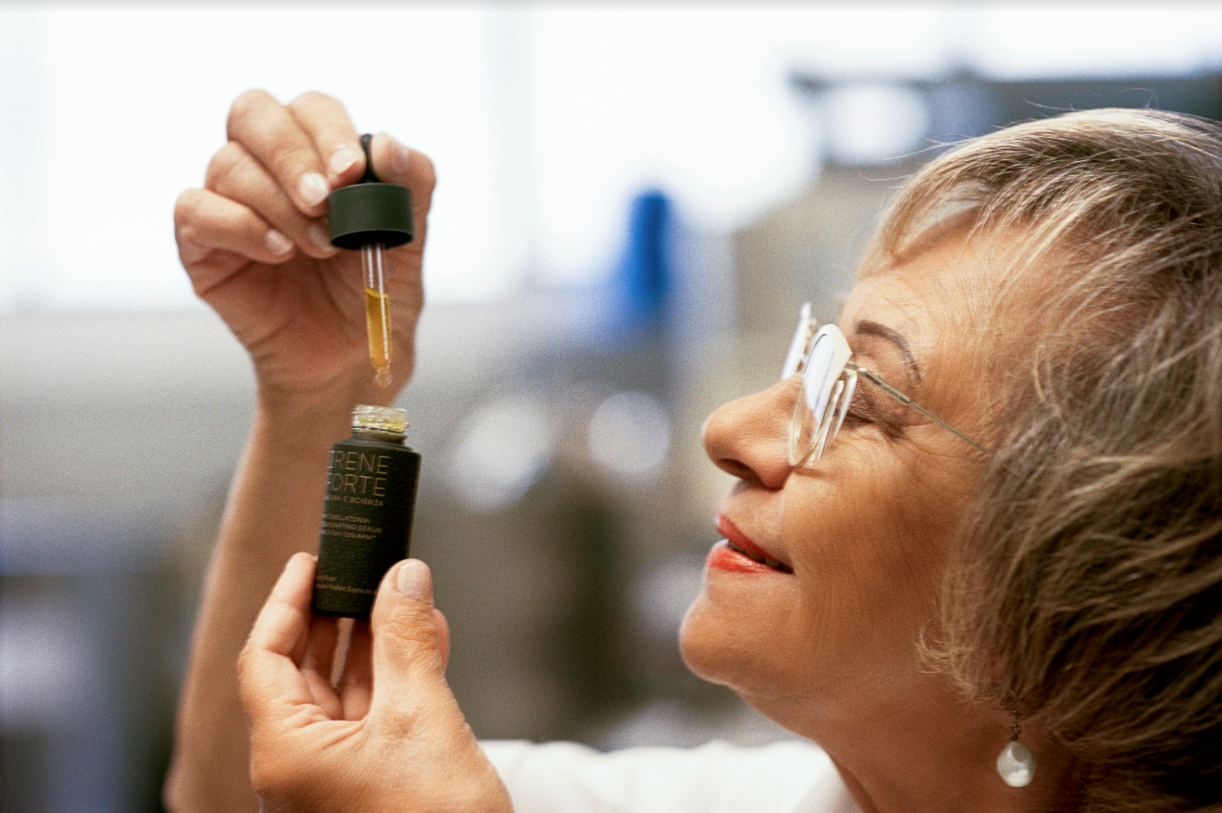
What is the difference between dry skin and dehydrated skin?
Dry skin refers to a skin type and dehydration refers to a skin condition.
Can you tell us a little more about dry skin?
Dry skin lacks oil because it produces less sebum than normal skin, and the lack of sebum means the skin is without the lipids it needs to retain moisture and to build a strong barrier to protect it against external aggressors.
Dry skin tends to be uncomfortable, flaky, and itchy. The worst areas are typically near the eyebrows and around the corners of the nose and mouth. On the body, common trouble areas include the neck, the inside of the arms, and the thighs.
What about dehydrated skin?
Dehydrated skin does not have enough water. A good test is to pinch your cheek. If it's wrinkling with gentle pressure instead of holding its shape, your skin cells are desperate for water. Dehydrated skin will feel tight, look dull in the mirror, and you may notice more exaggerated wrinkles. Common signs of dehydrated skin include redness, lots of congestion, inflammation, dullness, itchiness, dark circles under the eyes, sunken eyes, increased incidence or appearance of fine lines and surface wrinkles.
Here are some other tell-tale signs:
- Increased thirst and dry or sticky mouth
- Fatigue, confusion or anger
- Dry eyes or blurred vision
- Headache or disorientation
- Muscle cramps
- Bad breath
- Lack of sweat
- Dark urine
- Fever
What causes dehydrated skin?
The causes of dehydrated skin can be more than your skin lacking in moisture or water. It can be caused by environmental factors, lifestyle habits, diet, makeup, incorrect product use and even the weather.
Prolonged exposure to the sun, cold wind, air conditioning and heating, can all cause moisture to evaporate from the skin. An excessive lifestyle that includes alcohol, too much caffeine, smoking, lack of sleep, a poor diet and even lots of sweating from exercise can serve to dry out skin. It can also be aggravated by prolonged use of the wrong skincare.
What lifestyle changes can improve dehydrated skin?
Our skin is the largest organ in our bodies; it's exposed to harmful elements more frequently than other organs. So, reducing alcohol, stopping smoking, and minimising UVA exposure are extremely important to help the skin.
Then, it might seem obvious, but it's vital to drink plenty of water. I recommend drinking eight glasses of water per day. Eat a balanced diet, and swap dehydrating foods and beverages for water-rich alternatives. Foods like cucumber, watermelon, pear, grapes and avocado are not only delicious, but they are also more than 90% water, making them great picks for rehydration. I recommend starting the day off with a green juice made of celery, spinach, and cucumber, for example.
Vitamins are also a great way to improve hydration. Vitamin E's powerful antioxidant properties can help to protect the skin from further damage. Plus, it's an anti-inflammatory and thus can soothe that dryness that comes with dehydrated skin. Vitamin C’s benefits for skin are vast, including its ability to even out skin tone and diminish the appearance of fine lines and wrinkles. While this powerhouse ingredient is well-known for its skin-brightening benefits, research also shows it can shield skin from the visible impacts of environmental stressors, including free radical damage. The protective and nourishing properties of Vitamin A, and the nutrients your body uses to make it, lend a hand in keeping skin healthy, firm and radiant. It protects against UV damage and slows signs of ageing, encouraging healthy skin cell production and smoothing wrinkles. You can take all three of these Vitamins orally as supplements; however, I would always recommend doing a blood test first/checking with your doctor.
What kind of skincare routine do you recommend?
Topical applications of Vitamins E, C and A are helpful for all the same reasons as I mentioned above. I would also always suggest using skincare with Hyaluronic Acid. Hyaluronic Acid is a super hydrating ingredient; it can enhance the moisture content in the skin, as well as revitalise the skin’s outer surface layers, so they look and feel softer, smoother and radiantly hydrated. I would also say to add a serum to your routine, underneath your moisturiser, and to use a heavier cream at night. Even though we're shielded from the harsh outdoor climate, heated dry air causes us to naturally lose moisture while we sleep.
Here's a specific Irene Forte routine that I would recommend:
AM: Almond Cleansing Milk, followed by the Helichrysum Toner, the Triple Level Hyaluronic Serum, the Olive Eye Cream, and then finishing with the Aloe Face Cream. The latter three products are all clinically proven to significantly increase skin hydration. You must always finish with a high protection SPF.
PM: Almond Cleansing Milk, followed by the Helichrysum Toner. Twice a week, add the Almond Face Scrub next. My favourite tip is exfoliating; as dead skin builds up, it can diminish the absorption of moisturisers. Leave the scrub on for five minutes like a mask, before working the granules around need areas. Follow this with the Pistachio Face Mask. Then, following the toner (or the scrub and mask twice a week), add the Hibiscus Serum, and then the Hibiscus Night Cream. For an added hydration boost, you can also swap the Hibiscus Night Cream with the Pistachio Face Mask, using this overnight. Or, add the Rose Face Oil after the Hibiscus Night Cream.
For extremely dehydrated skin, I would recommend using the Hibiscus Night Cream both day and night. You can also double on your serums, starting with the Triple Level Hyaluronic Serum and following with the Hibiscus Serum.
Any other tips to share with our readers?
I'm a traditional Chinese medicine specialist, and thus I would recommend massaging a particular point, the Chinese point LI2 point (see below). If you massage this point vigorously for at least 1 minute, it can clear heat and expel wind out of the channel in the face.

Then, I would suggest considering putting a humidifier in your office or home to keep the air adequately humid so that your skin doesn't release moisture to the air.
Even though we can all experience dehydrated skin at times, a balanced skincare routine and following a few tips consistently means that your skin will feel hydrated, and happy, in no time.




